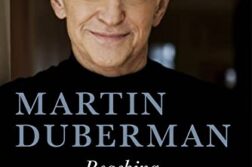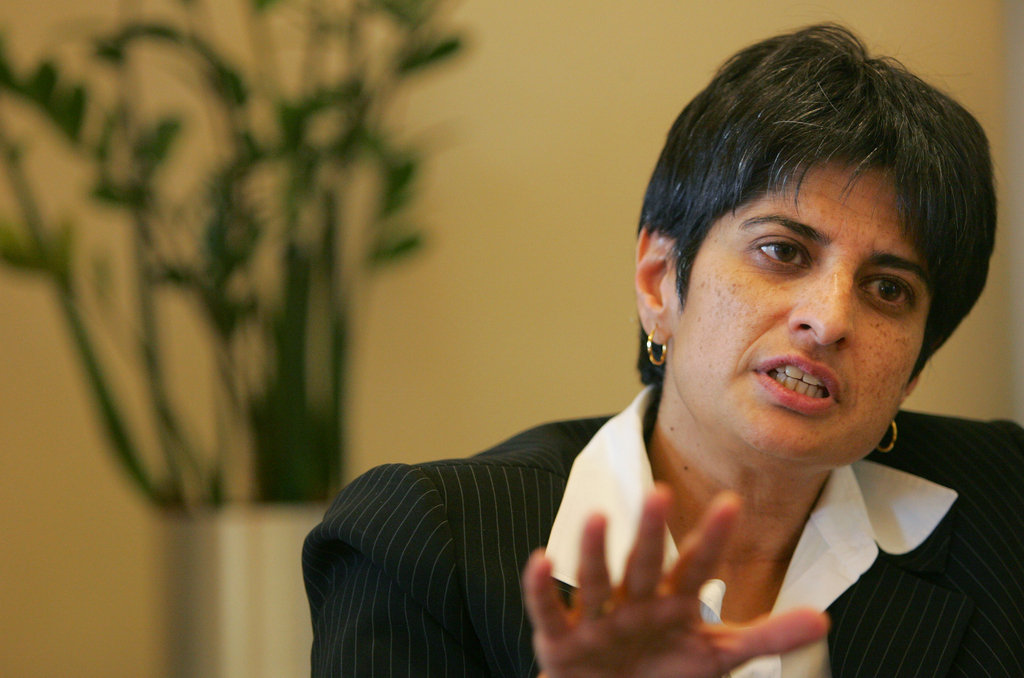DON ELDRIDGE GORTON III (1960–2022) was a longtime activist for LGBT causes in Massachusetts who was also an integral part of this magazine for many years. Born in Mississippi, he took a law degree at Harvard in 1985 and began his career as an activist soon thereafter. Among his many positions of leadership in LGBT organizations, he was co-chair of the Governor’s Task Force on Hate Crimes from 1991 to 2003, where he spearheaded the successful campaign to pass a comprehensive hate crimes bill in the Commonwealth.
Don’s involvement with what was then The Harvard Gay & Lesbian Review began in the late ’90s and was multifaceted. He took the lead in reconstituting us as a nonprofit 501(c)(3) organization, which was transformative for the magazine. He also joined our Board of Directors, where he remained as our Clerk until his death on Christmas Eve, 2022. And he began to write for The Review—features, book reviews, op-ed pieces—and did so for the next twenty years.
In the end Don wrote 25 articles on a strikingly wide array of topics, from history and literature to politics and pop culture. I suspect there was always a “political” dimension, even when it was a deep historical dive or literary analysis. Thus, for example, a piece on E. M. Forster’s Maurice argued that its author was a visionary who anticipated gay liberation sixty years before Stonewall. His historical research was all about locating the origins of modern laws against homosexuality, and that brought him to the court of Henry VIII in two lengthy articles that we remember fondly 25 years later.
The first was titled simply “The Origins of Anti-Sodomy Laws,” and the search led straight to the Antibuggery Law of 1534. Henry had just broken with the Roman Church and was looking for any pretext to undermine its authority, harass its clergy, and confiscate its property. That the Catholic monasteries were hotbeds of sodomy was apparently common knowledge at the time, so by making it illegal—and punishable by death—he now had a pretext to round up the clergymen and send them to their doom. So he emptied the monasteries and confiscated their property; thus it was basically a land grab. Nevertheless, the 1634 law stayed on the books for centuries, taking various forms, as Don showed in a subsequent essay titled “Oscar Wilde Died for Henry VIII’s Sins.”
After a five-year hiatus, Don returned to write more directly about LGBT politics, bringing a unique perspective in the context of our mostly lefty writers. When I first met Don (circa 1990), he was a tax judge appointed by Republican governor William Weld, whom Don had supported as a candidate. I don’t know at what point he stopped calling himself a Republican, but his disenchantment with the Party, and his steady move to the left, was documented in his articles. In one titled “The Gay Republican Conundrum,” he took on the Log Cabin Club and concluded that their Party’s relentless opposition to LGBT rights made their position untenable. In another, he offered a sober analysis of why Mitt Romney lost the Republican nomination in 2008. It’s interesting to note that it was still possible back then to have a calm discussion about the Republican Party, i.e., to regard it as other than a clown car or a crypto-fascist movement. In any case, by the 2010s, Don had become a leader in a notably lefty group called Join the Impact. (I joined him on a few of their outings.)
Later, Don wrote quite a few op-ed pieces and shorter features on issues of the day—bullying, the “It Gets Better” campaign, marriage equality—plus a number of book reviews. Then there were the articles on off-beat topics of the kind that editors crave. Take a piece titled “The Lure of the Muscular Man” (2015) in which he argued that the appearance of physical strength and fitness (rather than actual success in hunting or battle) has been favored by natural selection—or really sexual selection—as an element in human evolution. And a piece in 2005 titled “A Literature of Hope for GLBT Youth” offered a remarkably detailed survey of novels in this new genre for young adults, and their role in the coming-out process.
His final contribution was in 2017. After that, I would on occasion invite him to write an op-ed, and he’d reply that he had writer’s block, which sounded like a temporary condition, so I always assumed he would be back one day with fresh insights, research, and provocations for our readers. Alas, this was not to be, but I’m grateful for Don’s many contributions and for the permanent record we have of his passion and creativity in the service of LGBT justice and equality.





